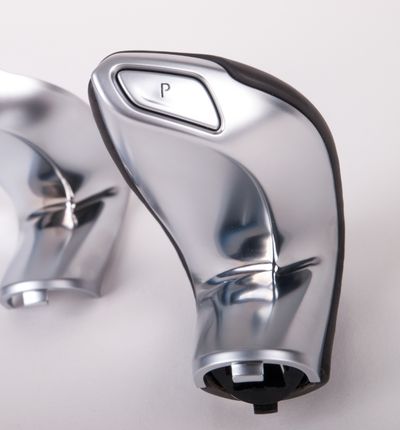Industrial research of new clean etching solutions free of hazardous waste generation – METNET
Plastics are currently occupying a predominant place in the automotive sector, as their lightness contributes to reducing the weight of the car by 17-50% and, consequently, fuel consumption and CO2 emissions into the atmosphere.
Nonetheless, these workpieces require high mechanical and aesthetic features and, in some cases, painting or plating is required. The plating process for plastics, which is based on electrolytic deposition technology, involves several stages, initially requiring surface conductivity on the part to facilitate the deposition of the subsequent plating coatings. In view of the low electrical conductivity of plastics, surface treatments such as etching are used, which generates environmentally toxic waste.
However, is it possible to obtain less aggressive alternative methods for the surface treatment of plastic parts?
For this reason, a study is carried out to find new technological solutions for coating plastic surfaces with a metallic material, avoiding the use of dangerous chemical substances.
With this objective in mind, an initial study is carried out on the current situation of technologies in the etching process, the determination of the physical and chemical characteristics needed and the final specifications that the workpiece must meet, to establish the starting point and the final objective that is sought to be achieved.
In parallel, three alternative methods to etching with a lower environmental impact are analysed in order to compare the processes with the lowest impact and the greatest effectiveness.
Finally, the new technological solutions will be applied in a pilot plant and using final parts on which it can be verified if they pass the tests applicable to these workpieces designed for this highly demanding sector.
This action will analyse three sustainable technological solutions as alternatives to traditional etching, such as surface conductivity modifying polymers, inorganic fillers, and the use of different aqueous oxidant solutions.
Consequently, this will generate a technically viable alternative capable of improving the mechanical and thermal properties of plastic items intended for chromium plating in the automotive sector compared to the etching process, so that those with the greatest potential can replace more aggressive technologies. The industrial replicability of the process and its economic viability will also be analysed.
The METNET project, Industrial research of new clean etching solutions free of hazardous waste generation, is led by the company SATIS COATINGS, with the participation of Aquasolvent, AIDIME, UPV, and AIJU.
- Referee: INNEST/2022/94
- Start: 01-09-2022
- Duration: 25 moths
COORDINATOR CONTACT DETAILS:
Name: María Jordá
Phone: 34 96 555 44 75
E-mail: mariajorda@aiju.es


